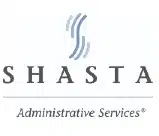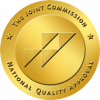Admitting that your child needs teen drug rehab and counseling can be heartbreaking for a parent. But the most effective teen substance use programs don’t just address addiction in teens, they strengthen family relationships and heal the underlying mental health issues at the root of the problem.
Parents don’t always realize how closely teen substance use and mental health are linked. Problem substance use is typically a co-occurring disorder, meaning it occurs in conjunction with a mental health diagnosis. Because teens often use substances as a form of self-medication for emotional pain, that pain must be healed in order for young people to find long-term, sustainable healing. Therefore, effective teen rehab treatment must address the trauma, PTSD, anxiety, depression, loneliness, and/or low self-esteem that can lead to addiction in adolescence.
How to Help Teens Affected by Addiction
It can be extremely difficult for parents to decide how to handle teenage drug use. Understanding the reasons for addiction in teens can help. A teenager using drugs is not doing so simply to rebel or to make their parents angry. They are in distress and attempting to cope the only way they know how. Because the decision-making areas of the adolescent brain are still immature, teens are often unable to make better choices or to look ahead and consider how drug use may lead to addiction. Recognizing these truths can make it easier for parents to offer compassion and unconditional love rather than judgment or anger.
Parents often wonder how to know when their child needs teen addiction help. First, initiate a calm and open conversation with your child about their drug use. Let them know you’re worried about them and assure them that you are there for them no matter what. If you have concerns after this conversation, the next step is to schedule an evaluation to determine whether your child would benefit from a teen rehab program. Teen rehab will not only change your child’s life for the better, it may even save their life.
Types of Teen Rehab
Teen rehab is often used as a catchall term to describe a variety of treatment approaches and substance use programs for teens. Parents looking for teen addiction help may not be aware of the various treatment options. The different types and levels of care include:
- Teen drug counseling on a weekly basis or more frequently
- 12-step recovery programs or other support groups
- An outpatient drug rehab for teenagers, either full-day with academics or after school
- Residential care, the most intensive and verifiably successful adolescent addiction treatment.
Research finds that at least 30 days in a supportive and structured residential teen rehab is highly effective in providing substance misuse help for teens. A study supported by the National Institute on Drug Abuse found that adolescents who met or exceeded the minimum treatment time in a teen drug rehab program were 1.5 times more likely to remain in recovery a year later. It takes time for teens to open up and build trust and connection with their therapists so they can communicate honestly about what they’ve experienced in the past and what they are going through now. They also need time to practice new ways of coping with difficult emotions and situations.
The right teen addiction help can set adolescents up for a thriving future. They come to understand how substance use is serving as an unhealthy coping mechanism for underlying mental health conditions and emotional pain. As they heal those issues, they create more harmonious relationships with family and peers, and develop their unique talents and strengths. Ultimately, teens in recovery learn how to step confidently into their authentic selves.
More About Teen Substance Use

Teen Drug Rehab and Counseling
More About Teen Substance Use
Benefits of Substance Use Treatment for Teens
Teens affected by addiction may not be motivated to enter drug rehab for adolescents. However, research shows that when they are in the right treatment program and proper level of care, the majority of teens quickly engage with their therapists and their treatment goals. Here are some of the immediate and long-term benefits of attending a teen rehab program.
Short-Term Benefits of Drug Rehab for Teens
- A healthy and sober lifestyle, without dependence on substances
- More energy and vitality
- Enhanced interest in activities and social connections
- Improved concentration
- Better lifestyle habits, including sleep and appetite
- Reduction in underlying trauma, depression, and/or anxiety
Long-Term Benefits of Teen Substance Use Treatment
- Stronger emotional regulation and executive functioning skills
- A heightened sense of purpose that motivates increased engagement in academics and career planning
- Greater trust and support within the parent-child relationship
- Enhanced self-esteem and resilience
- Healthy coping mechanisms for dealing with the inevitable stressors of life
Insurances We Work With
We work with most major insurance companies, including both In-Network and out-of-network payers, to optimize access to care for families and teens affected by addiction.













Teen Addiction Treatment at Newport Academy
Many teen drug rehab and counseling programs focus solely on behavior. Teens learn alternative coping mechanisms for emotional distress to keep them from relapsing into substance use. While this is an important aspect of treatment, addressing the underlying issues is necessary for long-term recovery.
Newport Academy is a different kind of teen rehab. Our teen recovery program is mental health primary, meaning that we view addiction in adolescence as a symptom of underlying mental health issues. And we believe that one of the best methods for treating adolescents with drug problems is to help them identify and work with these underlying issues to fully rehab teens.
At Newport Academy, teens uncover and heal the sources of their emotional pain, while also building distress tolerance and healthy coping skills. Our teen recovery programs achieve industry-leading outcomes by treating the trauma, attachment wounds, anxiety, and depression that catalyze problem substance use.
Effective Therapies for Addiction in Teens
To effectively address addiction in teens, Newport’s substance misuse programs for youth use a variety of approaches, including individual therapy, group sessions, and teen drug counseling with licensed clinicians. Moreover, unlike other teen drug rehab programs, Newport’s teenage substance use treatment centers require ongoing family involvement.
We believe that repairing parent-child relationships that have been disrupted—either early in childhood or during a teen’s struggle with substance use—is an essential aspect of the healing process. Our model shifts the focus from the patient as the “problem” to the family as the solution.
Our Clinical Model
Newport Academy uses a documented and outcomes-validated treatment model with standardized protocols, session goals, and group curriculum. Our philosophy of care focuses on building secure attachment for clients to safely be vulnerable, explore interests, discover passions, and gain meaning, purpose, and insight to replace high-risk behaviors.
Each client in Newport Academy’s teen drug rehab center receives a tailored treatment plan, designed by an integrated team of experts in adolescent addiction treatment. Treatment plans are informed by a teen’s and family’s specific needs and history and comprehensive psychological assessments.
What Our Teen Drug Rehab and Counseling Program Includes
Newport Academy offers a full continuum of care to meet each young person and family where they are in the journey of healing from addiction in adolescence. Our teen rehab options at locations around the country include residential substance abuse programs for youth as well as outpatient treatment. After treatment, our Continuing Care program provides support for both clients and families. In addition, our robust Alumni Programming keeps teens in recovery connected to like-minded peers and to a network of caring professionals.
Residential Teen Rehab Center
Newport Academy’s residential substance abuse programs for youth provide comprehensive care in a safe, supportive, and home-like environment. Each adolescent has an individualized residential treatment plan and a tailored discharge plan to ensure continued recovery when they return home.
Partial Hospitalization Program
The PHP level of care offers programming all day, five days a week, for teens who are stepping down from residential teen rehab or who do not qualify for a residential level of care. A PHP offers clinical care and a stabilizing routine, and teens go home to their families at the end of the day.
Intensive Outpatient Program
For clients who are attending school during the day, an IOP with afternoon hours provides teen drug counseling throughout the week, with regular check-ins and support groups for the entire family. With Outpatient Services, teens attend the program fewer than five days a week, as needed.
A Typical Treatment Plan for Teenage Problem Substance Use
Each client’s daily schedule at our teenage substance use treatment centers includes a variety of evidence-based clinical and experiential modalities. Clinical sessions support teens to process underlying mental health issues and strengthen connections with family. Experiential therapy provides nonverbal ways for adolescents to build self-esteem, bond with others, and work through past traumas.
In our residential and PHP teen rehab, clients’ schedules also include several hours of strength-based academics in our accredited educational program. Teens may fall behind in their academics at other teen recovery programs but at Newport Academy, academics are part of our treatment model. Through individualized instruction and tutoring, we ensure that adolescents not only stay on track but also experience academic engagement and progress in our teen drug rehab and counseling program, in some cases for the first time.
Clinical Modalities
- Cognitive Behavioral Therapy to reframe negative thinking
- Dialectical Behavioral Therapy to build distress tolerance
- Family therapy using Attachment-Based Family Therapy
- Emotional Freedom Technique
- EMDR (Eye Movement Desensitization and Reprocessing)
- Acceptance and Commitment Therapy and Motivational Interviewing to support engagement in teen rehab
Experiential Modalities
- Yoga to help teens be more present in their body
- Mindfulness to support emotional regulation
- Music and art therapy
- Mixed martial arts and fitness activities
- Equine-Assisted Therapy
- Adventure Therapy, such as ziplining and kayaking
- Community service
How to Support Your Teen and Address Addiction in Adolescence
The most important way to support a teen using drugs is to access effective treatment as quickly as possible. However, the wide range of teenage substance use treatment centers and approaches available can be confusing for parents. It’s not easy to tell the difference between unsafe and unlicensed teen rehab programs as compared to programs that utilize the best methods for treating adolescents with drug problems.
When considering how to properly support a teenager using drugs, look for programs with respected accreditations and affiliations with recognized organizations in the field. In addition, the most effective teen recovery programs utilize evidence-based modalities to treat the mental health issues associated with adolescent substance misuse so they can achieve sustainable healing.
Our Accreditations
Newport holds the Gold Seal of Approval® from The Joint Commission, the nation’s oldest and largest healthcare accrediting body, and is affiliated with a wide range of national organizations and certification bodies.
Teen Substance Abuse Articles
To support parents and professionals, our extensive library of resources provides a wide variety of information on addiction in teenagers, substance abuse help for teens, and other mental health topics. Explore the latest research on teens and addiction, find tips for how to handle teenage drug use, and read Q&As with our clinical experts and thought leaders.

Teen Vaping: The Complete Guide for Parents
Get the latest information on teens and vaping, including statistics, health risks, and how to tell if your teenager is vaping.
Identifying Drugs Your Teen Might Be Using
Parents know that drugs are harmful for their teen, but they might not know what specific drugs look like and how to identify them.
The Risks of Teen Adderall Use
The ADHD drug Adderall is used by thousands of teens who do not have an ADHD diagnosis and are unaware of the dangers and side effects.













